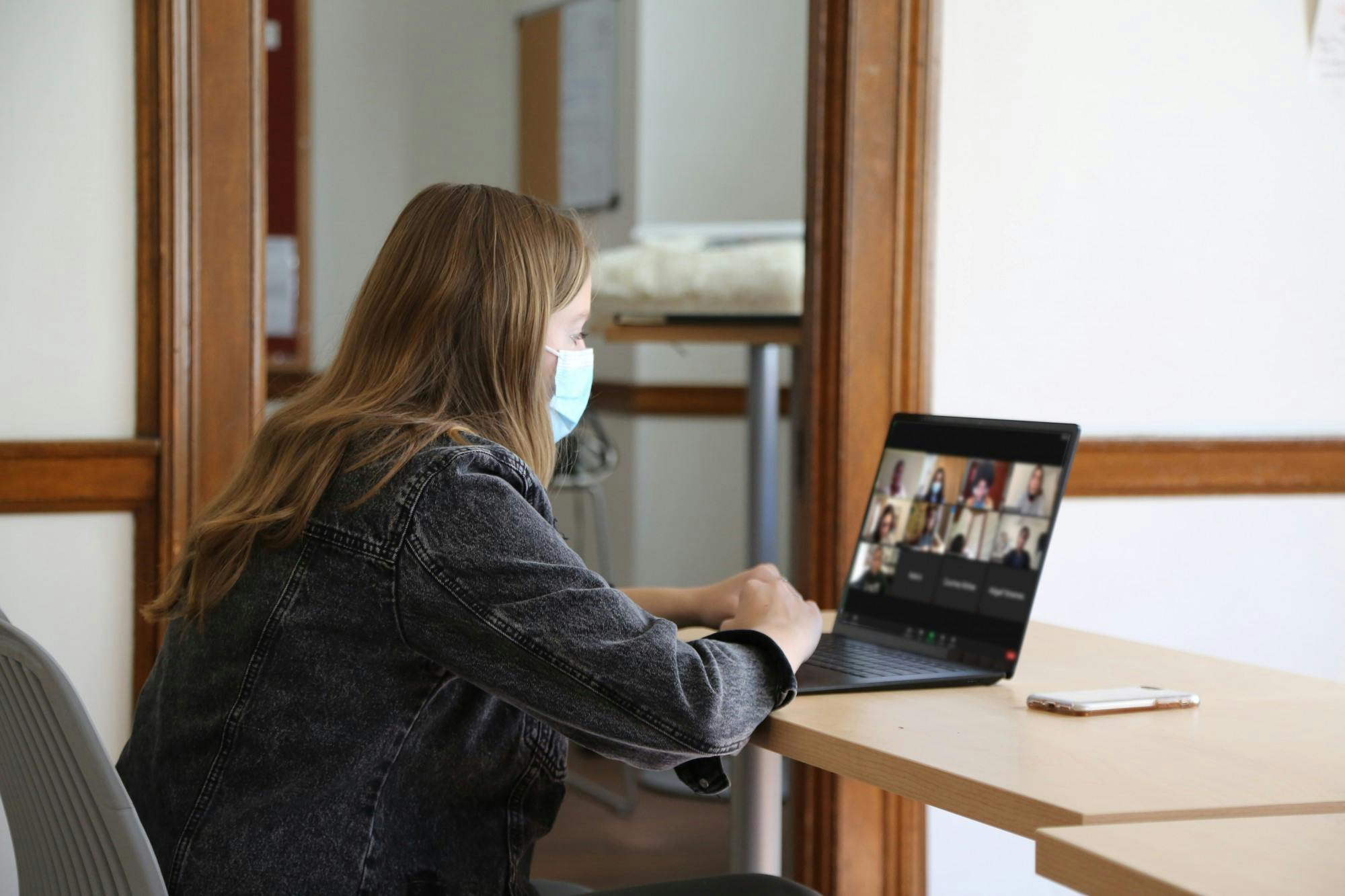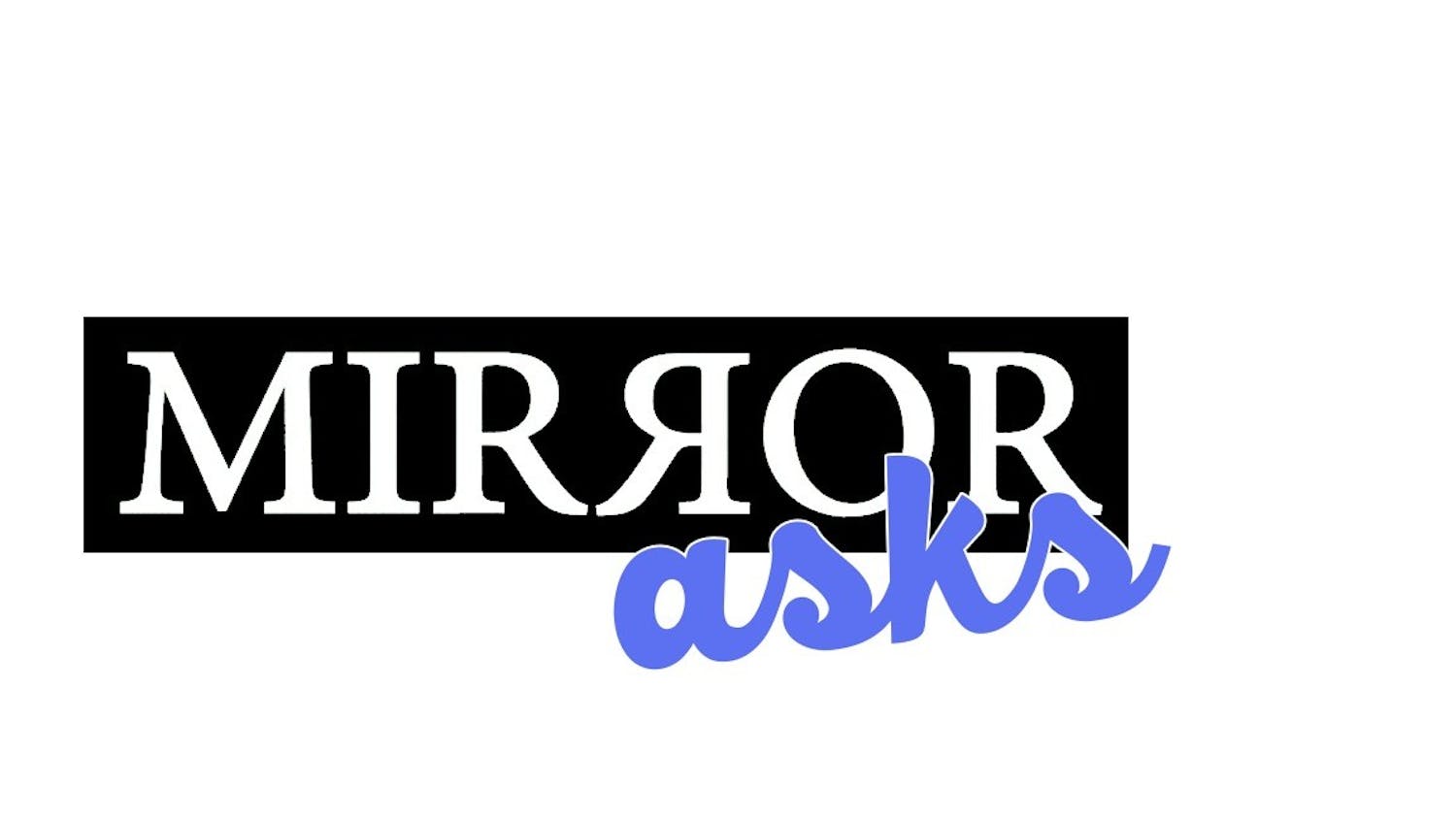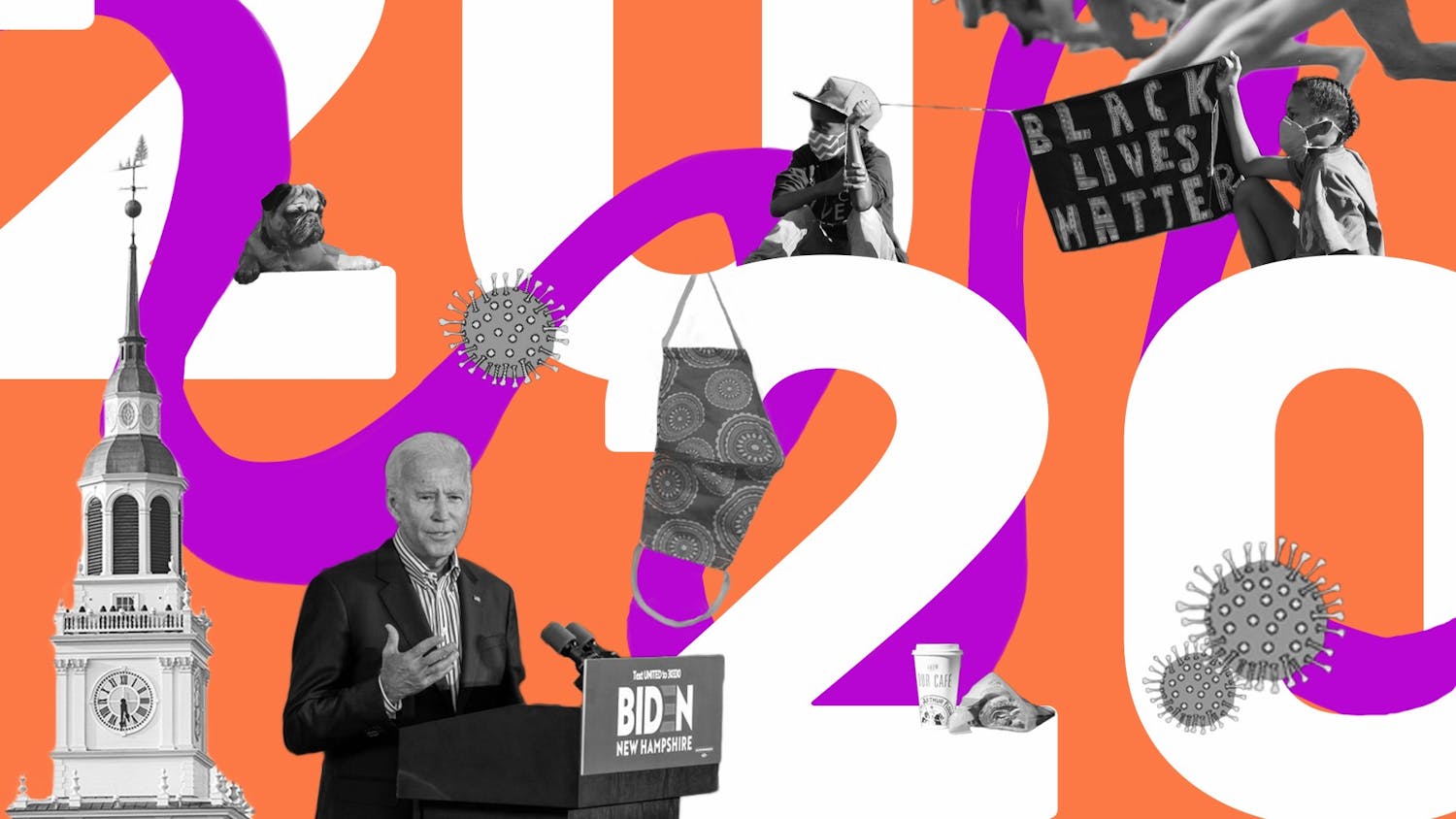Those who’ve been through drill know that you never forget the feeling of sitting, clammy-handed, in a room with five to eight of your classmates, furiously racking your brain for a verb tense that was just on the tip of your tongue. Drill, otherwise known as the Rassias method, is an essential organ of Dartmouth’s language program.
Rassias Center for World Languages and Cultures executive director — and daughter of John Rassias, creator of the Rassias method — Helene Rassias smiled as she recalled the thread of events that intertwined the history of drill with the history of her family.
“My dad started [drill] for the Peace Corps in the ’60s, but the origins come from him, as a kid, having to learn English,” Rassias said. “My grandmother never learned English, so he went to first grade not really knowing the language.”
John Rassias, explained Helene Rassias, had a lifelong fascination with language. As a member of the Marine Corps in U.S.-occupied Japan in the 1940s, he taught himself enough Japanese to speak with the people he encountered. Afterwards, as a pre-med student at Bridgeport University on the GI Bill, he continued to be interested in languages.
Rassias eventually found his way to the University of Dijon by way of a Fulbright scholarship in the 1950s, and it wasn’t until the mid-’60s that his work with the Peace Corps brought him into contact with Dartmouth’s French department. His route to Hanover was no walk in the park, but his passion for language-learning and theater were the foundations for the Rassias Method, which endures over fifty years later.
“He was trying to figure out a rhythmically emotional way to introduce language, because he also did a certificate in theater studies,” Helene Rassias said.
Drill has evolved since its inception, but pre-pandemic, it looked something like this: three times a week, small groups of students in any language class numbered I, II, or III would gather for fifty minutes of energetic repetition, conjugation and recitation under the guidance of a fellow student trained as a drill instructor.
“Good energy, fun and rhythm—[drill] is almost like a song,” explained French and Italian language program director and Italian professor Tania Convertini. “It’s a great addition to what happens in the classroom.”
For Convertini, and for French professor Kelly McConnell ’00 A&S ’03, this “good energy” is really the soul of drill. McConnell taught ten terms of drill in her years as an undergraduate and graduate student, and experienced life as a drillee in her Italian classes. Running drill and taking classes with John Rassias, explained McConnell, helped to foster her love of teaching and pursue her love of language.
“[John Rassias] was just awesome. I took four-course terms because I was a physics major and I had to take my math, science and freshman seminar, but I wanted to take a class with John Rassias,” McConnell said. “That kind of productive goofiness of his, I like to think we still bring that to drill.”
At its best, drill offers an environment where students are free to experiment with their own knowledge without the pressure of an omnipotent professor in the room. This, combined with the rapid-fire questioning style and a culture of rolling with the punches, can yield a sort of linguistic alchemy.
“I think the progress that our Dartmouth students make in one term of spoken French is ‘hallucinant’ [mind-blowing],” McConnell said. “It’s unbelievable. I think it’s because you get over that fear and resistance. Drill helps you stop overthinking everything and learn to spit it out.”
Since the start of the pandemic, Helene Rassias and language department faculty alike have experimented with software that simulates the spontaneity of drill, though Dartmouth students and faculty across all departments have been confronted with the inability to fully adapt the curriculum to an online format.
“It was impossible to think that everything could transfer to Zoom as it was,” Convertini said. “The idea that we could take our class and just move it to Zoom is, I think, a misunderstanding.”
Luke Rohlen ’22 has served as a drill instructor for both French and Italian since the start of the pandemic and now runs online drill twice a week for half an hour — as opposed to its usual thrice-weekly for fifty minutes format.
“When you’re limited to two times a week, you miss out on interpersonal relationships and communication,” Rohlen said. “But the correct answer is not to just bring back drilling three times a week for fifty minutes online. You just don’t have the same attention span and you’re not in that dynamic atmosphere where you’re always pushing your limits.”
Convertini has adopted a new philosophy for online language learning, one with a basis in understanding the limitations of students and faculty alike during the unprecedented circumstances of the past year.
“Our mantra during the pandemic has been: ‘Keep it simple, keep it meaningful, connect, practice empathy and learn from the challenge,’” Convertini said.
Helene Rassias described drill as being built on shared energy. Its goal — which Zoom lags, muted microphones and however many miles between members of a drill group seem destined to frustrate — is to create something like a convivial piece of theater.
The pandemic, as Rohlen sees it, has eliminated some of the nuts and bolts that make face-to-face drill what it is.
“It’s really hard to read the room, it’s hard to see mannerisms [and] it’s hard to express actions,” Rohlen said. “So much is lost through online drill, and that makes it really tough to learn a completely new language.”
However, Rohlen commends the Rassias Center for their efforts to make the most of the situation despite the limitations of remote learning.
In some ways, the Rassias method relies on emotion as much as intellect. While according to Rassias, drill works best in person, she expressed her appreciation for what a collaboration between drill instructors and faculty has been able to accomplish.
Learning a language is always a chaotic, humbling and difficult process, as likely to inspire clammy hands in a speaker of many years as a complete newbie. Especially with the theatricality and rapidity of the Rassias method, language-learning, perhaps more than other subjects, is best served by having as many contact hours as possible. Consequently, faculty throughout Dartmouth’s language departments are peering with cautious optimism toward the future.
“I think we’re all looking forward to gaining back that in-person energy,” Convertini said. “... We’re all looking forward to having drill instructors in the class with students. I think that’s a general feeling — we’re all starving for in-person contact.”





